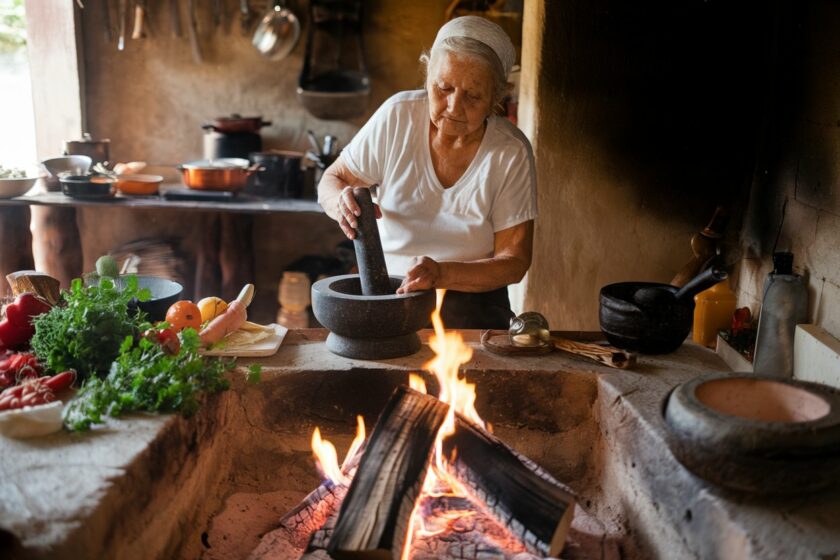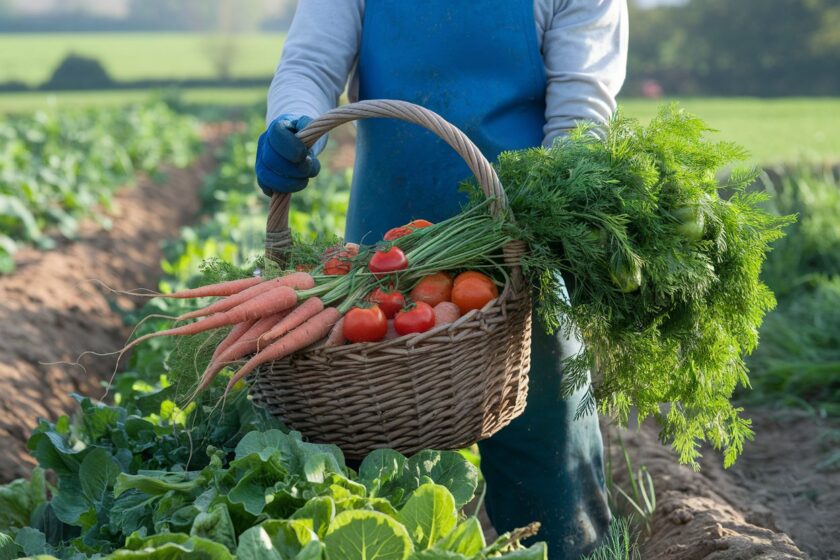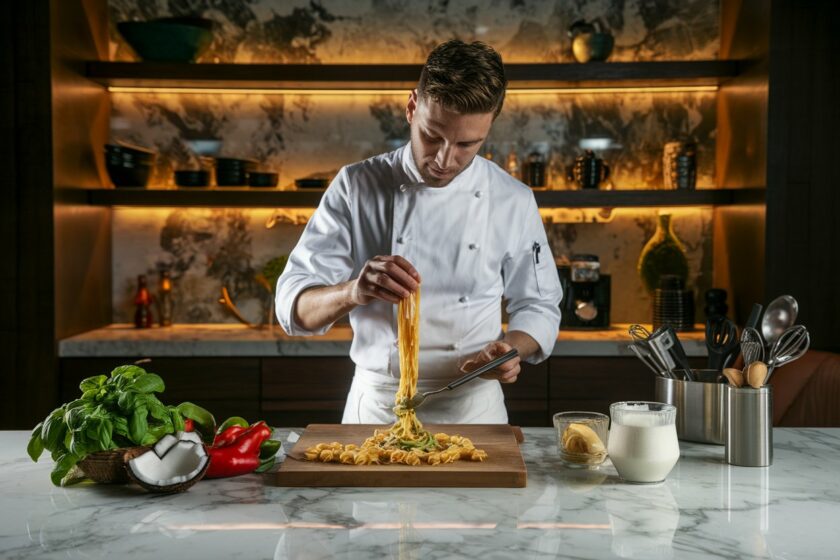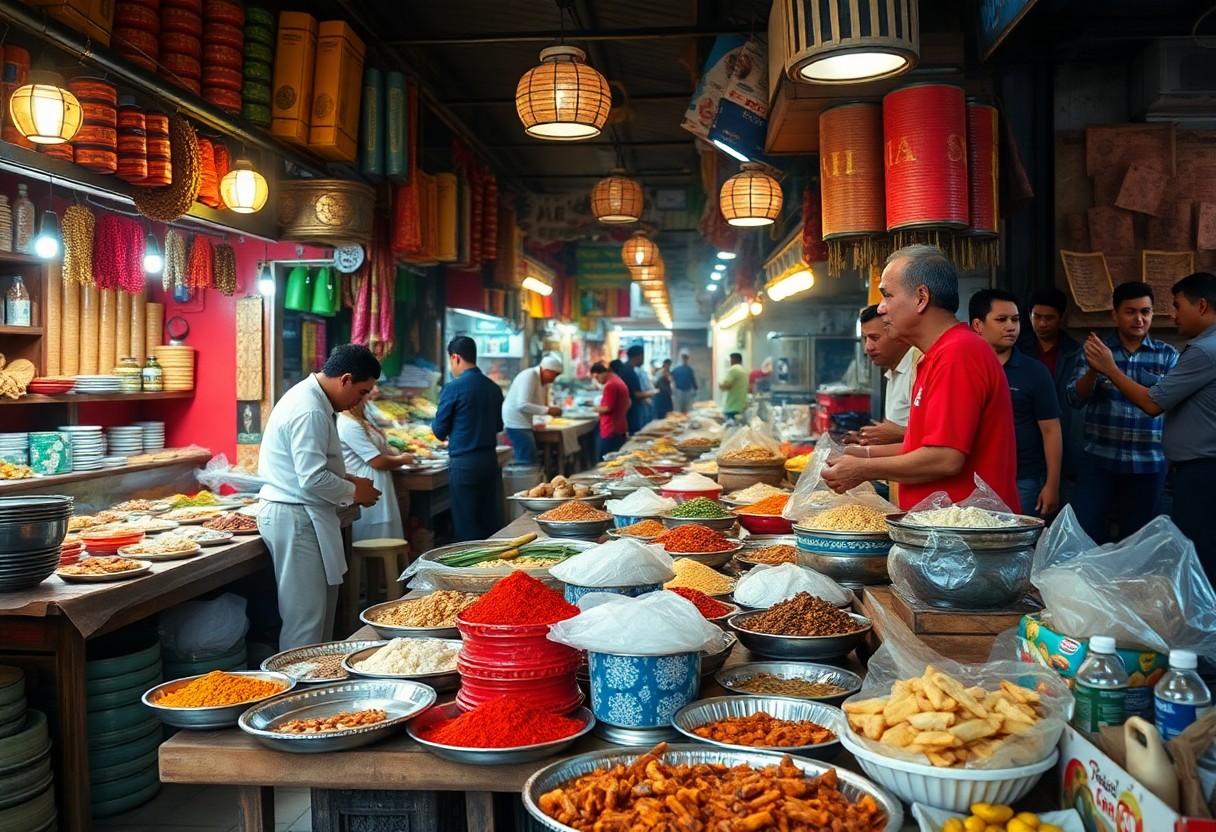With a world so rich in culinary heritage, you may find yourself wondering which local cuisines truly deliver an exquisite taste of authenticity and tradition. Exploring diverse food cultures not only tantalises your taste buds but also offers insights into the history and rituals that shape these dishes. From the aromatic spices of Indian curry to the rustic simplicity of Italian pasta, this post will guide you through a selection of dishes that embody the essence of their origins. Let your culinary journey begin!
The Essence of Local Cuisines
A vibrant tapestry of flavours and ingredients characterises local cuisines, reflecting the history and culture of a region. The dishes you encounter are often steeped in tradition, showcasing the diversity of local produce and methods. They allow you to experience authentic culinary artistry, inviting you to savour the essence of a place through your taste buds. In a world of globalisation, local cuisines promise a unique connection to the land and its people, making every bite a journey into a region’s heart and soul.
Defining Authenticity in Food
Essence of authenticity in food lies in the *quality*, *ingredients*, and methods handed down through generations. Local dishes are often a reflection of the environment, creating a unique flavour that cannot be replicated elsewhere. For you, indulging in authentic cuisine means experiencing a deep connection to its origin, cultivated over time through love, tradition, and community involvement.
The Role of Tradition in Culinary Practices
At the heart of many local cuisines is an intricate weave of tradition, serving as a cornerstone of culinary practices. These time-honoured techniques, often passed from one generation to the next, shape not only the taste but also the narrative behind the dishes. Each recipe you encounter is a testament to the *skills*, *values*, and *stories* of the people who created it, offering you a unique glimpse into their heritage and cultural identity.
In fact, many traditional cooking methods, such as *slow fermentation* or *smoking*, are vital in enhancing the flavours and ensuring the integrity of the dishes. By appreciating these practices, you not only honour the past but also contribute to the preservation of the cultural landscape. Engaging with local cuisine fosters a connection to the community, allowing you to understand their *fascinating stories*, which are entwined with their culinary history. As you explore deeper, you’re invited to participate in an age-old ritual that celebrates togetherness and shared experiences through food.
Iconic Dishes from Around the World
You will discover that each region boasts iconic dishes that encapsulate its culture and history. From the hearty Experience True tradition and quality of authentic Italian pasta to the aromatic spices of Indian curries, these culinary delights promise an exquisite taste of authenticity and tradition. Each dish tells a story, inviting you to explore the rich tapestry of flavours that define its heritage.
Mediterranean Flavors: A Taste of History
About the Mediterranean cuisine, it’s a beautiful medley of flavours, reflecting centuries of trade and cultural exchange. Dishes such as Greek moussaka, vibrant Moroccan tagines, and Italian risottos showcase regional ingredients and traditional cooking methods, offering you a genuine taste of history. Each meal celebrates local agriculture and the importance of fresh, seasonal produce, ensuring an unforgettable dining experience.
Asian Delicacies: Harmony and Balance
On your journey through Asian culinary landscapes, you’ll experience dishes crafted with an emphasis on balance and harmony. Each ingredient plays a vital role, contributing to the overall taste and aesthetic of the meal. From the gentle spices of Thai cuisine to the intricate flavours of Japanese sushi, Asian delicacies are a testament to the philosophy of balance in both flavour and nutrition.
Taste the essence of Asia through its delicacies, where every bite reveals a harmony of flavours and textures that can transform a simple meal into a vibrant experience. With dishes that often include fresh herbs, perfectly balanced spices, and artfully presented ingredients, Asian cuisine invites you to indulge your senses. You might discover dishes made with seasonal vegetables, succulent proteins, and nutrient-rich grains that nourish both body and spirit. The culinary art of fostering balance is not just a cooking method but a philosophy that shapes each recipe, encouraging culinary adventure and exploration.
Ingredients that Tell a Story
Some ingredients whisper the stories of their origins, connecting you to the landscapes and cultures that produced them. When you indulge in local dishes, you savour the essence of heritage through spices, herbs, and produce that have been cultivated with care over generations. These flavours tell tales of tradition, evoking the memories of family recipes and the bounty of the region, enriching your culinary experience.
Locally-Sourced vs. Imported
With the increasing emphasis on sustainability and freshness, locally-sourced ingredients have become the cornerstone of authentic cuisine. When you choose local, you enjoy food picked at its peak, brimming with flavour and nutrients. Additionally, supporting local farmers strengthens your community while preserving traditional farming practices, ensuring that generations to come can continue to enjoy these culinary roots.
The Impact of Seasonal Ingredients
Ingredients that are in season offer a unique taste and texture, which significantly affects the quality of your meals. When you embrace seasonal produce, you not only support local agriculture but also amplify your dishes’ flavours. The freshness of seasonal ingredients allows you to create memorable meals that celebrate the natural synergies of flavours found in their peak state.
Impact on your culinary experiences is profound when you focus on seasonal ingredients. Not only do they provide enhanced flavours, but they also foster nutritional benefits as they are harvested at the optimal time. Additionally, incorporating seasonal produce into your meals supports local economies and reduces environmental impact by minimising food transport. By embracing these ingredients, you contribute to a sustainable food system and enjoy dining experiences that reflect the changing seasons.

Cooking Techniques that Preserve Tradition
Unlike modern culinary practices that often prioritise convenience, traditional cooking methods focus on preserving the essence of regional flavours and techniques. These time-honoured approaches not only honour your ancestors but also enhance the overall authenticity of the dishes you prepare, allowing you to connect with your cultural heritage in a meaningful way.
Methods Passed Down Through Generations
For many cultures, culinary techniques are a vital part of their identity, handed down through generations. This passing of knowledge ensures that the original flavours and methods remain intact, allowing you to appreciate the depth of your heritage through authentic meals that tell a story.
The Importance of Community in Culinary Arts
Methods of preparing food often thrive in a communal setting, where families and friends gather around the kitchen. This collaboration not only strengthens social bonds but also encourages the sharing of diverse techniques that enrich your understanding of culinary traditions. The act of cooking together fosters an environment of respect and appreciation for the cultural significance behind each dish.
And in such settings, you experience the true essence of communal cooking; it is not just about the food but about creating lasting memories with loved ones. Traditional recipes evolve as each generation contributes, giving you a personal stake in your culinary heritage. You witness how food can unite communities, celebrating diversity and shared experiences, making every meal an opportunity for connection and learning.

The Role of Local Markets and Producers
Your exploration of local cuisines cannot be complete without acknowledging the significance of local markets and producers. These vibrant hubs source fresh, quality ingredients, reflecting the rich heritage and flavours of your region. Local markets not only foster a sense of community but also ensure that the culinary traditions are preserved through generations. By fostering connections between consumers and producers, you support a sustainable food system that values authenticity and tradition.
Connecting Chefs with Their Sources
One of the most valuable aspects of local markets is their ability to connect chefs with their sources. This direct relationship allows chefs to curate seasonal menus that highlight regional produce, enhancing your dining experience. By knowing where the ingredients come from, chefs can tell a story on your plate, making your meal not only delicious but also deeply connected to local traditions and the community.
Supporting Sustainable Local Economies
By choosing to engage with local markets, you play a vital role in supporting sustainable local economies. This engagement helps to bolster small producers and farmers, ensuring that they can continue their traditional practices. Additionally, it reduces the environmental impact associated with transporting goods over long distances, ultimately enriching your local economy.
Further, supporting local economies means prioritising the livelihoods of your community. When you source ingredients from nearby producers, you contribute to a system that values fair wages and ethical practices. This not only fosters food security but also promotes biodiversity by encouraging the cultivation of native crops. When you invest in your local markets, you are paving the way for a sustainable future, where traditions and authenticity thrive.

Global Influence on Local Cuisines
All around the world, local cuisines have been enhanced by a myriad of global influences, leading to a rich tapestry of flavours and techniques. As cultures intermingle through trade, travel, and technology, traditional recipes often undergo an evolution, introducing new ingredients and cooking styles. This fusion creates exciting culinary experiences while also raising questions about the identity of authentic cuisine, as the lines between local and global blur.
Fusion vs. Authenticity: Where to Draw the Line
Draw the line between fusion and authenticity can be a challenging endeavour, particularly as chefs innovate and experiment in the kitchen. While some purists might argue that true authenticity lies in traditional recipes and methods, others advocate for the artistry and creativity found in fusion dishes. Ultimately, you are left to explore your own palate and preferences, deciding how much innovation enriches your experience of a cuisine without diminishing its roots.
Preserving Tradition in a Globalized World
Beside the burgeoning influence of globalisation, preserving culinary traditions is vital for ensuring that the essence of local cuisines remains intact. As you navigate through your culinary journey, it is imperative to seek out and support establishments that prioritise traditional cooking methods and local ingredients, which not only honours cultural heritage but also enhances your dining experience.
In fact, many communities around the world are taking strong steps to protect their culinary heritage from the overwhelming tide of globalisation. You may encounter initiatives such as traditional cooking classes, farmers’ markets, and local food festivals that celebrate the unique flavours of the region. By actively participating in these events, you directly contribute to the vitality of local cuisines, ensuring that future generations can savour a taste of authenticity and tradition, while also experiencing the rich narratives that come with each dish.
Final Words
With these considerations in mind, you can explore a world rich in flavours and traditions through local cuisines. Each dish offers a unique glimpse into the culture and history of its region, inviting you to savour authentic experiences. From the fiery spices of Indian curries to the delicate flavours of Japanese sushi, every culinary adventure enhances your appreciation of local customs. Seeking out these exquisite tastes not only satisfies your palate but also connects you to the heritage that has shaped each recipe over generations.
FAQ
Q: What are some local cuisines that exemplify authentic regional flavours?
A: Many local cuisines around the world offer exquisite tastes that reflect their cultural heritage. For instance, the intricate spices of Indian cuisine, such as in dishes like biryani and regional curries, highlight the diversity of local ingredients and traditional cooking methods. Similarly, Italian cuisine, with its emphasis on fresh, high-quality ingredients such as olive oil, tomatoes, and herbs, showcases the rich agricultural practices of the region. Other noteworthy examples include Mexican cuisine, renowned for its use of flavourful chillies, corn, and beans, and Japanese cuisine, where seasonal ingredients play a crucial role in dishes like sushi and ramen.
Q: How do local cuisines maintain their authenticity and tradition?
A: Local cuisines maintain authenticity and tradition through various means, including the use of time-honoured recipes passed down through generations. Families often take pride in preserving their culinary heritage, which can involve specific cooking techniques and regional ingredients that reflect their culture. Additionally, local markets play a significant role in sourcing fresh produce and herbs, ensuring that dishes are crafted with the flavours true to the area. Many communities also participate in food festivals and culinary workshops that celebrate traditional cooking methods, thereby keeping their gastronomic traditions alive for future generations.
Q: Why should one explore local cuisines when travelling?
A: Exploring local cuisines while travelling offers a unique insight into the culture and history of the region. Food is often a reflection of a country’s traditions, social practices, and natural resources, allowing travellers to experience a deeper connection to the community. Tasting local dishes not only satisfies the palate but also provides an opportunity to engage with local customs, such as dining etiquette and meal preparation. Additionally, trying regional cuisines encourages sustainable tourism, supporting local farmers and businesses while promoting the rich tapestry of culinary diversity around the globe.

